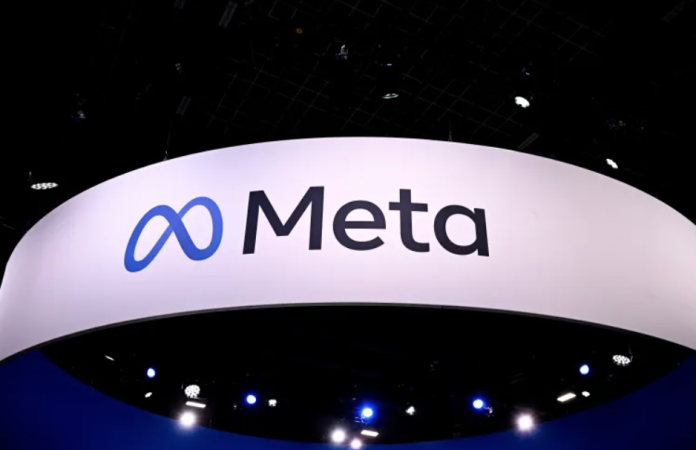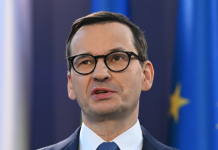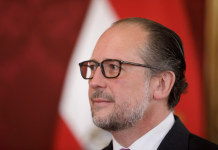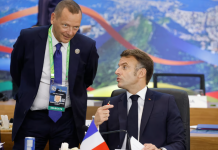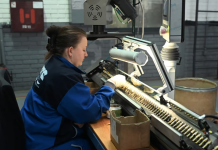Mark Zuckerberg’s invocation of ‘cultural tipping point’ comes as number of fact-checking initiatives has plateaued.
When Meta CEO Mark Zuckerberg announced this week that the social media giant would scrap third-party fact-checking and ease moderation of sensitive topics, he cast the decision as reflecting the zeitgeist.
The re-election of United States President-elect Donald Trump signalled a “cultural tipping point” towards free speech over moderation, Zuckerberg said.
In many ways, he was right.
Less than a decade after the rise of Donald Trump and Brexit spurred US tech platforms to crack down on misinformation online, momentum has shifted dramatically in favour of voices arguing for a less regulated, more freewheeling internet.
“This move by Meta is definitely part of a larger trend, with fact-checking undergoing some headwinds globally,” John P Wihbey, associate professor of media innovation and technology at Northeastern University in Canada, told Al Jazeera.
“My sense is that the changes are equally driven by political shifts and business necessity, as news organisations also need to move scarce resources to serve audiences in other ways.”
After a three-fold rise in less than a decade, the number of active fact-checking projects worldwide peaked in 2022 at 457, according to data collected by the Duke Reporters’ Lab.
Even Google searches for the terms “fact check” and “misinformation” hit their high watermark in 2020 and 2022, respectively, according to an analysis of search data by statistician and US election forecaster Nate Silver.
For fact-checking projects that have survived financial and political headwinds until now, Meta’s move raises questions about their continuing viability since many initiatives relied on funding from the tech giant.
Meta spent $100m between 2016 and 2022 supporting fact-checking programmes certified by the International Fact-Checking Network, according to the company.
Elsewhere in Silicon Valley, Elon Musk, one of Trump’s most powerful allies, has dragged the political centre of X, formerly Twitter, sharply to the right and touted the platform’s anything-goes bona fides.
Cozying up to Trump
Misinformation experts have decried Meta’s move and accused Zuckerberg of cosying up to Trump – who frequently accuses Big Tech and legacy media outlets of being in cahoots with his liberal opponents – just as he is about to take power.
“I consider Meta’s decision to be part of a widespread move among US corporations to pre-emptively submit to Trump’s expected demands, which will of course involve the attempt to abolish the very notion of not just fact-checking but also the existence of facts,” Stephan Lewandowsky, a psychology professor at the University of Bristol who studies misinformation, told Al Jazeera.
“That is a standard move in the autocrat’s playbook because it eliminates any possibility of accountability and precludes evidence-based debate.”
But for conservatives in the US, the shift serves as vindication of their longstanding complaints that fact-checking initiatives and content moderation decisions are heavily skewed in favour of liberal viewpoints.
In a 2019 Pew poll, 70 percent of Republicans said they believed that fact-checkers favoured one side over the other, compared with 29 percent of Democrats and 47 percent of independents, respectively.
In his announcement, Zuckerberg himself echoed such concerns, arguing that “fact-checkers have just been too politically biased and have destroyed more trust than they’ve created, especially in the US”.
Taking a leaf out of the book of Musk, he said Meta would phase in a “community notes” system similar to that used by X, where explanatory notes are added to contentious posts based on user consensus.
Zuckerburg also lent credence to conservative complaints about content moderation by pledging to remove restrictions on topics such as immigration and gender that are “just out of touch with mainstream discourse”.
“What started as a movement to be more inclusive has increasingly been used to shut down opinions and shut out people with different ideas, and it’s gone too far,” he said.
“Fact-checking journalism has never censored or removed posts; it’s added information and context to controversial claims, and it’s debunked hoax content and conspiracy theories,” Angie Drobnic Holan, director of the International Fact-Checking Network, said in a post on LinkedIn on Wednesday.
Lucas Graves, a journalism professor at the University of Wisconsin-Madison who researches misinformation and disinformation, said that arguments about the alleged bias of fact-checking initiatives were made in bad faith.
“In any healthy democratic discourse, you want people offering evidence in public for what kind of statement and what kind of claims should be believed and what shouldn’t, and of course it’s always up to you to make a judgement on whether to believe what you hear,” Graves told Al Jazeera.
“We want journalists and fact-checkers to be making their best effort to establish what is true and what isn’t in a political discourse that is often filled with information from all kinds of sources from all over the political spectrum,” Graves added.
There is research indicating that fact-checkers, like journalists, generally, disproportionately lean left in their politics, though it is difficult to say how that may affect their determinations.
In a survey of 150 misinformation experts worldwide conducted by the Harvard Kennedy School in 2023, 126 of them were identified as either “slightly left-of-centre”, “fairly left-wing” or “very left-wing”.
At the same time, various studies also suggest that right-leaning audiences are more susceptible to misinformation than their liberal peers.
Some critics of fact-checking groups, such as Silver, the founder of the FiveThirtyEight election forecasting website, have argued that fact-checkers have too often focused on edge cases, or claims that are not provable one way or the other, because of their liberal leanings.
“The scrutiny of Biden’s age was one such example,” Silver wrote on his Substack on Thursday, referring to speculation about US President Joe Biden’s physical and cognitive health before his decision to drop out of the 2024 presidential election race.
“Though obviously a suitable matter of journalistic inquiry, claims that the White House was covering up Biden’s deficiencies were often treated as ‘conspiracy’ theories, even though subsequent reporting has borne them out.”
Wihbey, the professor at Northeastern University, said that while fact-checking initiatives have limits in being able to resolve all disagreements about the truth, they are an example of the counter-speech that is crucial to democratic and open societies.
“It is true that, on many issues, there are conflicts of values, not just facts, and it is difficult for fact-checkers to render a strong verdict on which party is right. But in virtually any circumstance, good, rigorous, knowledge-based journalism can add context and provide additional relevant points around the issues being debated,” he said.
“The ideal speech situation in a democratic society is one where contending views clash and the truth prevails.”
While studies have shown that fact-checking efforts can have a positive effect on countering misinformation, the effect appears to be modest, not least due to the vast quantity of information online.
A 2023 mega-study involving some 33,000 participants in the US found that warning labels and digital literacy education enhanced the ability of participants to correctly rate headlines as true or false – but only by about 5-10 percent.
Donald Kimball, Tech Exchange editor at the Washington Policy Institute, an affiliate of the conservative State Policy Network, said that fact-checking initiatives have in many cases failed to change minds in the same way that banning Trump from major social media platforms did not make his followers disappear.
“I think in the new media economy ‘fact-checking away’ an idea doesn’t kill it any more,” Kimball told Al Jazeera.
“Perhaps in legacy media, it was easy to kill any alternative narratives, but now people can see the bevvy of individuals who agree with them. No longer are you crazy for disagreeing with the fact check when you can see other groups and communities take issue with it. I also think people are tired of being told what they see plainly in front of them is wrong.”
As for the future of fact-checking initiatives?
Wihbey said the history of media is littered with new forms of journalism that came and went in response to changing societal, cultural and political circumstances.
“Perhaps the fact-checking movement will be reinvented in new ways, but the precise media form and branding will change – maybe it’s not called ‘fact-checking’ any more,” he said.
“What I hope we do not lose is the drive in journalism to pursue empirical realities as much as humanly possible. This does not mean some kind of hubris and sense that journalism has all of the answers. But I think a pragmatic empirical approach – one that states we are open to changing our minds – and that searches for coherence in patterns of fact and accepts open debate, is the proper stance of professional journalism.”

